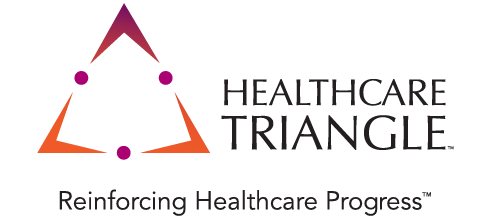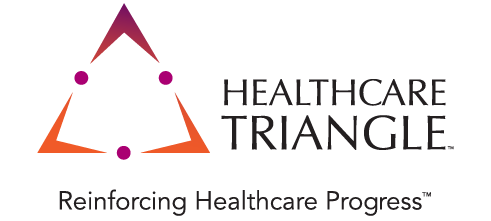6 Ways a Managed Services Approach Optimizes the Value of the Cloud in Healthcare
Healthcare Triangle
Oct 07, 2021
Healthcare IT departments face a growing challenge: how to protect business continuity across platforms amid increased ransomware attacks now that healthcare is the most targeted industry for cyberattacks.
Healthcare organizations must create layers of protection—including cloud-based protection—not only to protect their data, but to prepare for the explosion of new structured and unstructured data from health wearables to biometric sensors to mobile health apps. Providers will need advanced capabilities for collecting disparate data, tying the data to patients’ electronic medical records, and analyzing the data to improve outcomes.
Adding to the challenge is that the right staffing approach is also critical to gaining optimal value from the investment in the public cloud.
62% of healthcare leaders will focus digital investments on cloud computing.
64% of healthcare executives say lack of IT skills are the reason digital initiatives fail.
It’s one thing to say that there are many benefits to a move to the cloud, and clearly, health IT leaders know it’s a priority, but there are options, and they aren’t all equal.
For healthcare organizations, the combination of managed IT services approach and a prefabricated cloud platform to implementation and management brings a host of benefits to a move to the public cloud:
- Cost Containment: Eliminate the expense of maintaining an on-premises data warehouse and a backup facility offsite while reducing overall costs through advanced orchestration. Healthcare IT managed services can also offer a cost-effective alternative to adding more IT staff. Through a cloud center of excellence, existing IT staff can be reskilled and trained on advanced cloud tools as well.
- Best Practices: A managed services IT staff with deep experience in cloud migration can share best practices for moving to the public cloud and provide expert advice and technical support to your teams.
- Continuous Compliance: A prefabricated cloud platform ensures automated qualification and validation of the cloud infrastructure prior to deploying your applications along with latest security patches and upgrades for a more robust cybersecurity defense.
- Competitive Advantage: This transition provides the ability to leverage AI, machine learning, predictive analytics, and other technologies to remain competitive. It also sets the stage for a digital-first environment to support an increase in the need to manage, analyze and access structured and unstructured data from numerous sources.
- Scalability: Easily scale your data storage and staffing needs as things change without the need to recruit and train staff.
- Meaningful insights: Get insight into cloud usage across business units, along with updates on trends and forecast patterns to make informed decisions for your business.
An end-to-end IT managed services approach, combined with a prefabricated cloud platform, makes the transition to the cloud more affordable, faster, and easier to execute.
HCTI’s End-to-End Healthcare IT Managed Services
Our experienced teams of experts provide healthcare IT managed services with a flexible remote support model that can free your in-house IT team from day-to-day tasks. We offer end-to-end Healthcare IT Managed Services, with a focus on improving end-user experience, increasing efficiency, and helping you drive results from your strategic IT initiatives.
- Kootenai Health (formerly Kootenai Medical Center) a regional medical referral center, had successfully transitioned to application managed services with HCTI. HCTI’s deep expertise in both Epic and MEDITECH and proven methodology in managing applications & services supported Kootenai’s diverse portfolio, workflows, technical modifications, and enhancements for their existing applications. With HCTI’s strong partnership with client focus & flexible contract terms, Kootenai Health achieved an effective transition to managed services in less than 30 days
- HCTI backup and disaster recovery powered by AWS helped Fort Madison Community Hospital (FMCH) in southeast Iowa improve the resiliency of EHR. At FMCH, IT leaders implemented a public cloud-based backup and disaster recovery solution for its EHR in March 2021 as they bolstered their cybersecurity defense. The impact: a highly flexible, scalable, and more reliable solution for disaster recovery, with improved recovery time and a 30% savings over private cloud solutions. “With our information now available on Amazon Web Services’ public cloud platform, we know we can quickly and reliably recover from any disruptions, allowing our caregivers to continue to focus on patients,” says Shane Tepper, Chief Information Officer, Fort Madison Community Hospital.
Is your hospital IT overstretched? Let our end-to-end managed services team take care of your routine IT tasks and let your IT team focus on strategic priorities. Talk to Our Experts.


